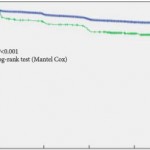Editorial: To PSA or not to PSA?
Family history (FH) has long been known to increase a man’s risk of developing prostate cancer (PCa); there is an approximately twofold increased risk with an affected father and a threefold increased risk with an affected brother [1]. Furthermore, FH may increase the risk of more aggressive disease for family members, although results of studies in the PSA screening era have been inconsistent [2, 3]. Using FH as a risk factor, the present analysis of the Swiss arm of the European Randomized Study of Screening for Prostate Cancer (ERSPC) conducted by Randazzo et al. [4] sought to determine whether men with a positive FH of PCa, followed up by PSA screening every 4 years, would have a higher risk of having more aggressive disease.
As expected, the present results show that a significantly higher proportion of men with a FH were diagnosed with PCa compared with those with a negative FH; however, there was no difference in the frequency of more aggressive disease amongst men with a FH, therefore, while FH information can be used to identify men at highest risk of PCa, it does not appear to identify those who are most likely to harbour clinically significant disease.
One reason that a positive FH may not be associated with aggressiveness in the present study is that it has been previously established that PSA screening is associated with a migration towards lower grade and stage disease. It may not be surprising, therefore, that the PSA screened arm may have less aggressive disease. What we ultimately want to understand is whether unscreened men with a FH present with more aggressive disease. This question may have been better addressed by comparing those with a positive FH undergoing screening with those with a positive FH not undergoing screening. Previous studies conducted in this fashion suggested a difference in PCa mortality among men with a positive FH [5]. Unfortunately, these data were not available in the ERSPC. Future studies that continue to evaluate this question may elucidate whether FH predisposes to more aggressive disease.
Another factor that may have impeded the results of the present study is that men aged <55 years were not included in ERSPC. It is possible that FH predisposes to more aggressive cancers earlier in life, in men as young as 40 years. There is evidence that relative risk and risk for early-onset disease increases when a father or brother is diagnosed at a younger age, <60 years [6]. Future studies incorporating this younger cohort of men should therefore be conducted.
Until it has been clarified whether men with a positive FH of PCa are at risk of more aggressive disease, PSA screening strategies that begin at young ages should be used. In this fashion, it will be possible to selectively test populations of men at highest risk of developing PCa. Once these men have been screened, clinicians will be able to distinguish men with aggressive disease from those with more indolent disease. We believe that this shifts the focus to a different question: to treat or not to treat? Future research should continue to focus on methods of identifying those men who will go on to develop aggressive disease. Until then, men with low grade disease should continue to be followed by active surveillance [3].




Men with very low risk prostate cancer and a family history of prostate cancer can be difficult to counsel towards active surveillance. Incidence is higher but biologic potential seems disconnected–this article seems to support this. Yet in my experience, many men will ignore this and pursue treatment out of anxiety. It may be useful to screen early in men with a family history but also to go ahead and describe the surveillance versus treatment situations and help them make a solid plan for the chance that such efforts uncover very low risk disease.
I’m frustrated by this discussion’s restriction of family history to father and brother – that’s very restrictive. In my case only one person. Yet I have 5 out of 6 older male second degree relatives with metastatic prostate cancer, and I had a 20cc cancer at age 52.